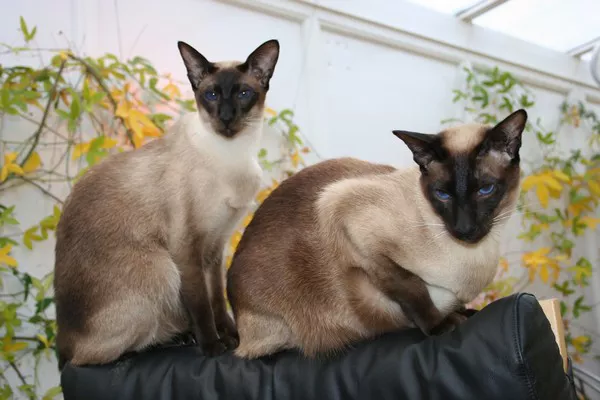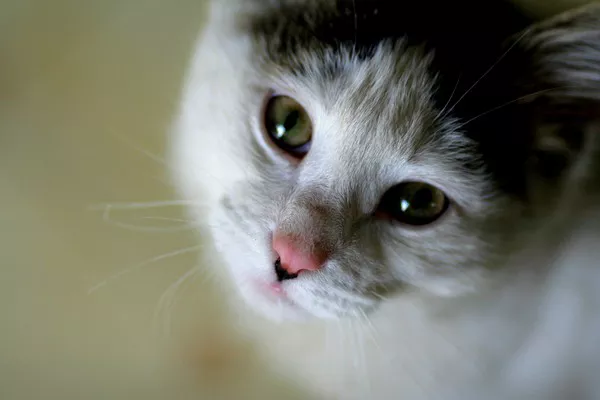Cats have long been cherished companions to humans, captivating us with their playful antics and mysterious behaviors. As pet owners, we often find ourselves wondering about the dietary preferences of our feline friends. One common question arises: do cats eat human food? This inquiry opens up a broader discussion about feline nutrition, the safety of various human foods for cats, and the implications of sharing our meals with them. In this essay, we will explore the intricacies of a cat’s diet, the types of human food that are safe and beneficial, and the potential risks involved in feeding our cats from the dinner table.
The Feline Diet: An Overview
Evolutionary Background
To understand whether cats can eat human food, it’s essential to consider their evolutionary background. Domestic cats (Felis catus) are descendants of wildcats, specifically the African wildcat (Felis lybica). These ancestors were obligate carnivores, meaning their diet primarily consisted of meat. Over thousands of years, as cats adapted to living alongside humans, their diet began to include some plant-based materials, but their nutritional needs remained largely dependent on animal sources.
Nutritional Requirements
Cats have unique dietary requirements that differ significantly from those of humans. They require specific nutrients, including:
Taurine: An essential amino acid critical for heart health, vision, and reproductive function.
Arachidonic Acid: A fatty acid that cats cannot synthesize and must obtain from animal fat.
Vitamin A: Unlike humans, cats cannot convert beta-carotene from plants into vitamin A, necessitating direct sources from animal tissues.
Niacin: Cats require higher levels of niacin than dogs or humans, which they obtain from animal proteins.
These requirements highlight the importance of a meat-based diet for cats, making it crucial to consider how human food aligns with their nutritional needs.
Human Foods Cats Can Eat
While many human foods are unsuitable for cats, several options can be safe and beneficial when offered in moderation. Understanding which foods are appropriate can enhance our cats’ diets and strengthen our bond with them.
Cooked Meat
Cats are instinctively drawn to meat, and cooked meats can be an excellent addition to their diet. Options include:
Chicken: A popular choice, chicken is lean and high in protein. Ensure it is cooked thoroughly and free of bones.
Turkey: Similar to chicken, turkey is another lean protein that cats often enjoy.
Fish: Fish such as salmon and tuna can be offered occasionally. However, they should be cooked and should not be the primary protein source due to potential mercury exposure and other health concerns.
Cooked Eggs
Eggs are a rich source of protein and other nutrients. Cooked eggs can be a healthy treat for cats, but they should never be served raw due to the risk of salmonella. Scrambled or boiled eggs are ideal options.
Vegetables
While cats are obligate carnivores, some cats enjoy small amounts of certain vegetables. Safe options include:
Carrots: Cooked carrots can be offered in small pieces.
Peas: Green peas are often well-received and can provide some fiber.
Pumpkin: Plain, cooked pumpkin (not the spiced pie filling) can aid digestion and is a favorite for many cats.
Fruits
Some cats may enjoy small amounts of fruit, although they should be offered sparingly due to sugar content. Safe fruits include:
Blueberries: Packed with antioxidants, blueberries can be a fun treat.
Melon: Small pieces of seedless watermelon or cantaloupe can be refreshing for cats.
Dairy Products
Contrary to popular belief, many adult cats are lactose intolerant, meaning they cannot properly digest lactose found in milk. However, some cats may tolerate small amounts of dairy, such as plain yogurt or cheese, as long as they do not show signs of digestive upset.
Human Foods to Avoid
While some human foods can be safe for cats, many are harmful or even toxic. It is crucial for cat owners to be aware of these foods to prevent serious health issues.
Onions and Garlic
Both onions and garlic contain compounds that can damage red blood cells in cats, leading to anemia. Even small amounts can be harmful, so it is best to avoid these altogether.
Chocolate
Chocolate contains theobromine, which is toxic to cats. Even small amounts can cause symptoms such as vomiting, diarrhea, and increased heart rate.
Grapes and Raisins
These fruits can cause kidney failure in cats, and even small quantities can be dangerous. It is best to keep grapes and raisins out of reach.
Alcohol
Alcohol is extremely toxic to cats, and even a small amount can lead to severe health issues, including respiratory failure and death.
Caffeine
Caffeine, found in coffee, tea, and certain sodas, can be harmful to cats. Symptoms of caffeine toxicity include restlessness, rapid breathing, and increased heart rate.
Raw Dough
Raw dough can expand in a cat’s stomach, leading to dangerous bloating and potential rupture. Additionally, the fermentation of the dough can produce alcohol, which is toxic.
The Risks of Feeding Cats Human Food
While sharing human food with cats can be tempting, there are several risks involved that pet owners should consider.
Nutritional Imbalance
Feeding cats human food can lead to nutritional imbalances if not done carefully. Cats require a specific balance of nutrients, and relying too heavily on human food can result in deficiencies or excesses.
Obesity
Cats are prone to obesity, and feeding them human food can contribute to excessive calorie intake. Obesity can lead to various health issues, including diabetes, arthritis, and heart disease.
Behavioral Issues
Encouraging cats to beg for human food can lead to behavioral problems. Cats may become overly demanding or develop a habit of stealing food, which can strain the owner-pet relationship.
Toxicity Risks
As previously mentioned, many human foods are toxic to cats. It is crucial for cat owners to be aware of these risks and to avoid offering potentially harmful foods.
Conclusion
In conclusion, while cats can eat certain human foods, it is essential to approach this practice with caution and knowledge. Understanding the nutritional needs of cats and the potential risks associated with feeding them human food is crucial for their health and wellbeing. By providing safe, cooked meats, vegetables, and fruits in moderation, cat owners can enhance their pets’ diets and strengthen their bond. However, it is vital to avoid toxic foods and to be mindful of the potential for nutritional imbalances and obesity. Ultimately, the best way to ensure a cat’s health is to provide a balanced diet specifically formulated for their unique dietary needs, supplemented with safe human food treats when appropriate.
Related topic:



























